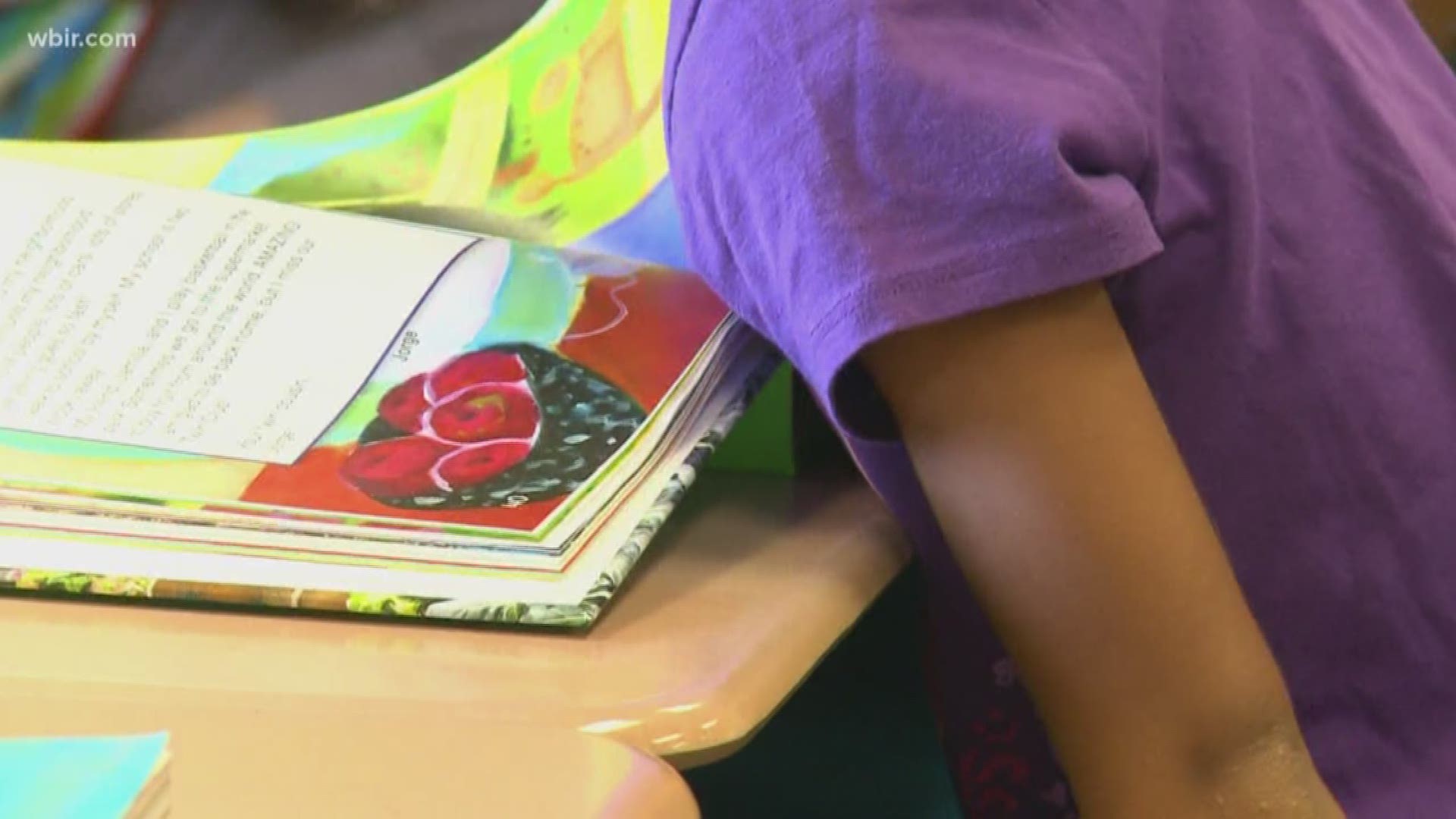Knox County Schools is increasing its focus on reading proficiency.
It's part of the state's goal to have 75 percent of third graders reading at grade level by 2025.
Superintendent Bob Thomas said only about 40 percent of Knox County third graders are reading at grade level.
That's a long way to go to hit the state goal, but literacy specialists at UT said this isn't as worrisome as it may sound.
"I do think it's important that we have standards, that we set expectations and that we track student progress. Otherwise, some kids probably will fall through the cracks," said Dr. Sherry Mee Bell.
Dr. Bell is a professor and the department head of the Theory and Practice in Teacher Education department within UT's College of Education, Health and Human Sciences.
She said while tracking reading levels is important, not all kids will hit that mark.
"Human development is variable and some children are going to progress faster than others," she said.
Associate professor and literacy specialist Dr. Amy Broemmel explained that reading levels are an average of all kids' abilities in any given grade level.
"By definition, we can expect that 50 percent of students will read above that and 50 percent will read below that," she said.
Dr. Bell said just because your child is behind in reading, that doesn't mean they have a learning disability. They may just need more direction in certain areas.
"It is a red flag if children lag behind their peers," she said. "Then that is something we want to pay attention to."
Dr. Broemmel said there's no one thing that causes lower reading levels. But she said students now are expected to know more at an earlier age.
"We expect kids to come in to kindergarten almost knowing all their letters and being able to take off reading by the end of that year of school," said Dr. Broemmel. "That's not something that 25 years ago we necessarily expected."
Experts said reading curriculum hasn't changed drastically in the past few decades, but teacher training has.
"Our most effective teachers are consistently using all the tools in their tool box to help kids get to not only decode the words but understand what the words are trying to convey," said Dr. Broemmel.
Knox County reading teachers have or will go through a year-long reading course where they'll learn the science behind literacy.
Schools are also working to increase reading on individual levels. Green Magnet Academy, for example, is having book talks on its morning announcements and scheduling more reading time throughout the day.
If you're worried about the statistics or think your kids may need a little help with reading, there are some simple things you can do at home.
Here are the top three tips from our experts:
- Read with your child at home for at least 20 minutes a night.
- Let them pick the book so they don't feel like it's a chore.
- Stay in contact with their teacher, because they may notice things about your child's reading habits that you don't.

